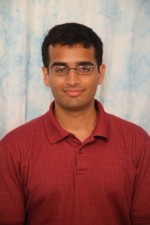Improving Prosody through Analysis by Synthesis
Event Location: GHC 6501Abstract: An iterative model-based method is proposed for improving linguistic structure, segmentation, and prosodic annotations that correspond to the delivery of each utterance as regularized across the data. For each iteration, the training utterances are resynthized according to the existing symbolic annotation. Values of various features and subgraph structures are "twiddled:" each [...]
Adaptive Motion Planning
Event Location: NSH 1305Abstract: Mobile robots are increasingly being deployed in the real world in response to a heightened demand for applications such as transportation, delivery and inspection. The motion planning systems for these robots are expected to have consistent performance across the wide range of scenarios that they encounter. While state-of-the art planners can [...]
Learning optimal policies for compliant gaits and their implementation on robot hardware
Bipedal animals exhibit a diverse range of gaits and gait transitions, which can robustly travel over terrains of varying grade, roughness, and compliance. Bipedal robots should be capable of the same. Despite these clear goals, state-of-the-art humanoid robots have not yet demonstrated locomotion behaviors that are as robust or varied as those of humans and [...]
Autonomous Intelligent Service Robots: Learning and Explanations in Human-Robot Interaction
Manuela Veloso Herbert A Simon University Professor, Carnegie Mellon Abstract We research on autonomous mobile robots with a seamless integration of perception, cognition, and action. In this talk, I will first introduce our CoBot service robots and their novel localization and symbiotic autonomy, which enable them to consistently move in our buildings, now for more [...]
Automatic Analysis of Facial Actions: Learning from Transductive, Supervised and Unsupervised Frameworks
Abstract Automatic analysis of facial actions (AFA) can reveal a person's emotion, intention, and physical state, and make possible a wide range of applications. To enable reliable, valid, and efficient AFA, this thesis investigates both supervised and unsupervised learning. Supervised learning for AFA is challenging, in part, because of individual differences among persons in face [...]
Measuring Human Motion in Social Interactions
Tomas Simon Carnegie Mellon University Abstract This thesis develops methods for social signal reconstruction---in particular, we measure human motion during social interactions. Compared to other work in this space, we aim to measure the entire body, from the overall body pose to subtle hand gestures and facial expressions. The key to achieving this without placing [...]
Robust and Natural Gait via Neuromuscular Control for Transfemoral Prostheses
Nitish Thatte Carnegie Mellon University February 03, 2017, Robust and Natural Gait via Neuromuscular Control for Transfemoral Prostheses, Porter Hall A19C Abstract We present work towards developing a control method for powered knee and ankle prostheses based on a neuromuscular model of human locomotion. Previous research applying neuromuscular control to simulated biped models and to [...]
Beyond Geometric Path Planning: Paradigms and algorithms for modern robotics
Kris Hauser Associate Professor, Duke University Abstract The development of fast randomized algorithms for geometric path planning – computing collision-free paths for high dimensional systems – was a major achievement in the field of motion planning in the 2000's. But since then, recent advances in affordable robot sensors, actuators, and systems have changed the robotics [...]
Me Car, You Human: Understanding Human Activity for Intelligent Collaborative Robotic Vehicles
Eshed Ohn-Bar Postdoctoral Researcher, University of California, San Diego Abstract The goal of my research is to develop human-centered algorithms for intelligent and autonomous systems. The research emphasizes modeling the perception, intent, and behavior of humans inside and around a vehicle. Over a decade has passed since the DARPA Grand Challenges, and the way in [...]








